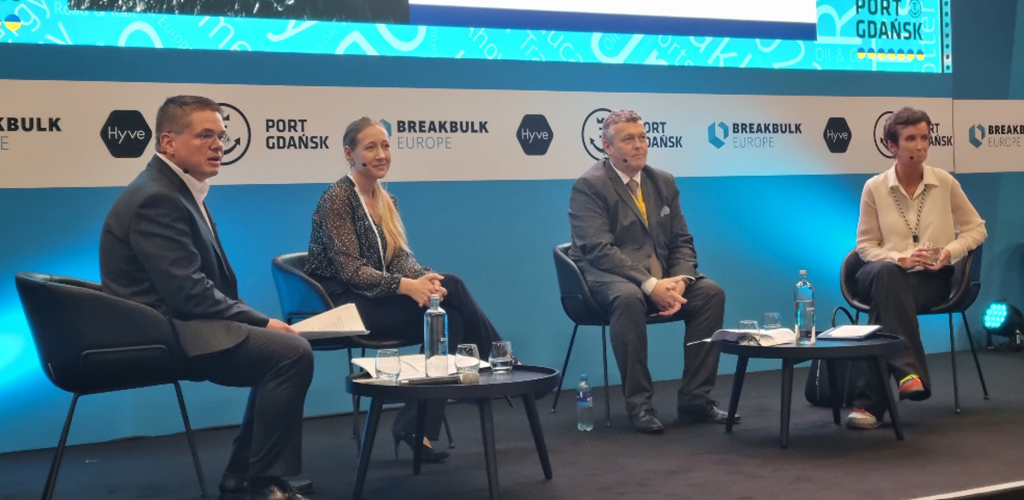May 18 | 2022
Decade-long Trade Tensions Laid Groundwork

By Carly Fields
SAME-DAY BREAKBULK EUROPE COVERAGE: The disruption currently plaguing the projects market today did not start with the war in Ukraine or with the pandemic, according to a panellist speaking at Breakbulk Europe taking place in Rotterdam this week.
Marie Louise Gammelgaard-Larsen, senior associate at Kaya Research and Advisory, said that today’s disruption has its roots in the trade tensions that surfaced last decade. That long lead-in means that there are no quick fixes to master today’s disruption.
“Right now, we need to do everything at the same time,” she said. “We are coming from 70 years of diversification and globalisation and now we are seeing disruption.”
Additionally, the market cannot “magically” meet growing renewables demand overnight, she warned. “We have to be realistic. We have to have emergency planning and be ready to use means that are not green in the short term - and that includes coal and nuclear.”
Panellist Martyn Lawns, regional vice president European operations - industrial projects at DHL Global Forwarding, described the impact of the current disruption as a “nightmare” for DHL’s customers. “I look at the struggles of our customers – it’s the perfect storm at the moment, coming out of the pandemic, with the high oil price impacting supply chains further.”
Moderator Thomas Poulsen, managing partner and facilitator at Panticon, Wind Logistics Group, noted that the current supply chain disruptions have created the paradox of rising emissions in the short term, contrary to the theme of energy transition.
Meanwhile, Beata Bac, global category manager – warehousing and inbound logistics, Shell International, asked what a sustainable transition actually means, as the definition is key to the solution. “To me, it means sustainable business practices, reducing waste and boosting efficiencies. It is important to look at this through that perspective.”
Lawns encouraged the audience to get in early where there is an opportunity to influence logistics decisions. “There has been a tendency to think that logistics is the last part of the chain,” he said. “We are trying to bring the logistics requirement forward, as early as possible in the process.” Lawns added that the industry as a whole needs to be making fewer journeys, and not only from an economic point of view.
In a parting rallying cry, the panellists called on the audience to collaborate, beyond the verticals that they operate in, and to engage in conversations on the energy transition. “It takes everyone to participate in a complex environment - shippers, governments, EPCs and suppliers – to be able to deliver sustainability,” Bac said.
Check out our post-session interviews with the speakers:
